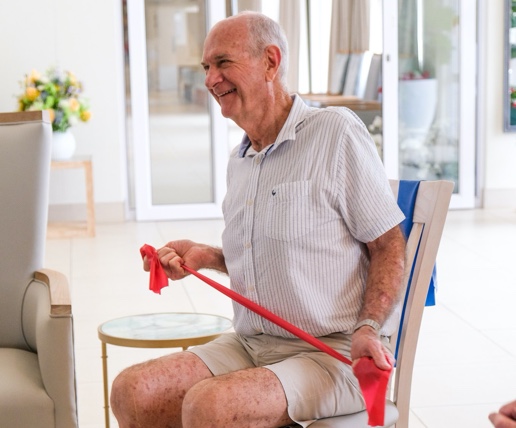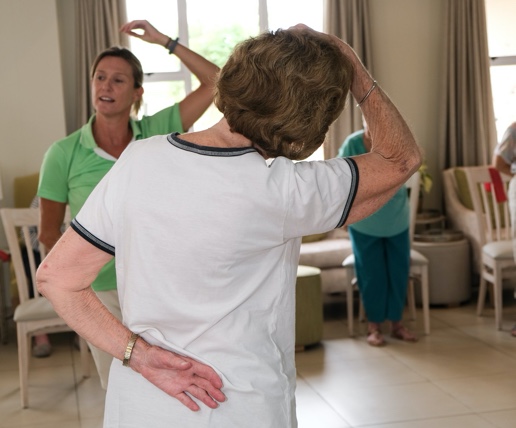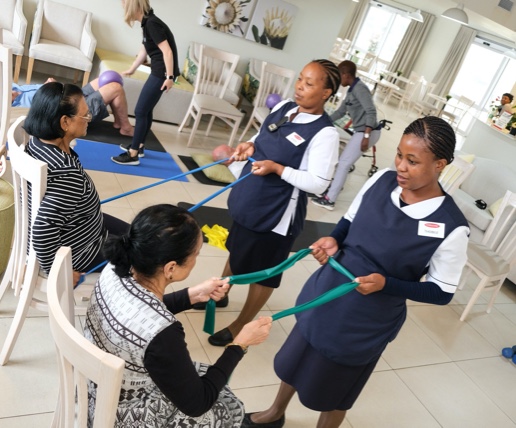
Osteoporosis is a fairly common condition that causes bones to weaken and degenerate over time. As a result, seniors are most at risk, and it’s the main reason why falling is so dangerous for the elderly. The good news is osteoporosis can be prevented and treated. With the right knowledge and care, you can decrease your risk of developing this disease, and counteract the effects as well.



1. What is osteoporosis?
Osteoporosis is a degenerative bone disease that results in the loss of bone mass and bone tissue over time. The inside of a healthy bone has small spaces, similar to a honeycomb. Osteoporosis causes these small spaces to increase in size, causing the bone to lose strength and density. In addition, the outside of the bone becomes thinner and more fragile.
Osteoporosis is a degenerative bone disease that results in the loss of bone mass and bone tissue over time. The inside of a healthy bone has small spaces, similar to a honeycomb. Osteoporosis causes these small spaces to increase in size, causing the bone to lose strength and density. In addition, the outside of the bone becomes thinner and more fragile.
2. What causes osteoporosis?
There are many reasons why osteoporosis can develop. Of course, age plays a large role, with bone density naturally declining over time. However, certain medical conditions, such as cancer and autoimmune diseases, can also speed up the process of bone degeneration. In many cases, the medication used to treat these medical conditions, such as steroids and chemotherapy, also affect bone density. Low calcium levels caused by a poor diet, gastrointestinal surgery that affects the ability to absorb calcium, and hypocalcemia (a calcium deficiency disease) are also factors. Genetics can also play a role, as osteoporosis is hereditary. Finally, lifestyle is a large factor, with adequate diet and exercise going a long way to help prevent and treat the condition.
There are many reasons why osteoporosis can develop. Of course, age plays a large role, with bone density naturally declining over time. However, certain medical conditions, such as cancer and autoimmune diseases, can also speed up the process of bone degeneration. In many cases, the medication used to treat these medical conditions, such as steroids and chemotherapy, also affect bone density. Low calcium levels caused by a poor diet, gastrointestinal surgery that affects the ability to absorb calcium, and hypocalcemia (a calcium deficiency disease) are also factors. Genetics can also play a role, as osteoporosis is hereditary. Finally, lifestyle is a large factor, with adequate diet and exercise going a long way to help prevent and treat the condition.
3. Who is most likely to suffer from osteoporosis?
The older you get, the more likely you are to develop osteoporosis. At around the age of 30, bone production slows down. So the longer you live, the less bone you have. Having said that, there are certain demographics that are more prone to developing the disease. White and Asian women — especially older women who are past menopause — are at highest risk. People with small body frames are also at risk, as they might have less bone mass to draw from. Smokers, drinkers and those with a family history are also at greater risk of developing osteoporosis.
The older you get, the more likely you are to develop osteoporosis. At around the age of 30, bone production slows down. So the longer you live, the less bone you have. Having said that, there are certain demographics that are more prone to developing the disease. White and Asian women — especially older women who are past menopause — are at highest risk. People with small body frames are also at risk, as they might have less bone mass to draw from. Smokers, drinkers and those with a family history are also at greater risk of developing osteoporosis.
4. What are the symptoms?
Osteoporosis can be difficult to detect as it has no obvious symptoms in its early stages. The first sign that you may have osteoporosis is an easily broken or fractured bone caused by a fall or even simply sneezing. Some more subtle indicators to look out for include stooped posture, loss of height and back pain.
Osteoporosis can be difficult to detect as it has no obvious symptoms in its early stages. The first sign that you may have osteoporosis is an easily broken or fractured bone caused by a fall or even simply sneezing. Some more subtle indicators to look out for include stooped posture, loss of height and back pain.
5. When should you see a doctor?
While there are no obvious signs of osteoporosis, it may be a good idea to speak to your doctor if you have any of the above-mentioned preconditions such as cancer, menopause or autoimmune diseases that require certain medications. If you are a senior or have a family history of osteoporosis, consider seeing your doctor for a check-up too.
While there are no obvious signs of osteoporosis, it may be a good idea to speak to your doctor if you have any of the above-mentioned preconditions such as cancer, menopause or autoimmune diseases that require certain medications. If you are a senior or have a family history of osteoporosis, consider seeing your doctor for a check-up too.
6. What is the treatment for osteoporosis?
While there is no cure for osteoporosis, there are a number of preventative and treatment measures that can significantly reduce the effects and help strengthen bones again. Doctors will likely prescribe medication that slows down deterioration, while also activating new bone growth. Supplements can help counteract a deficiency that’s causing the bone loss, such as calcium, vitamin D or loss of hormones due to menopause. There are also some proactive steps you can take to help avoid the onset of osteoporosis. This includes reducing alcohol intake, quitting smoking, doing cardiovascular exercise, maintaining a healthy weight, and introducing more protein and calcium into your diet.
While there is no cure for osteoporosis, there are a number of preventative and treatment measures that can significantly reduce the effects and help strengthen bones again. Doctors will likely prescribe medication that slows down deterioration, while also activating new bone growth. Supplements can help counteract a deficiency that’s causing the bone loss, such as calcium, vitamin D or loss of hormones due to menopause. There are also some proactive steps you can take to help avoid the onset of osteoporosis. This includes reducing alcohol intake, quitting smoking, doing cardiovascular exercise, maintaining a healthy weight, and introducing more protein and calcium into your diet.
At Totalcare, we are fully equipped to provide the professional care, facilities and support seniors need to stay healthy and safe according to their medical needs and conditions. Our seven retirement villages offer assisted living and frail care units, along with 24-hour medical assistance, nutritional meals, exercise facilities, and wheelchair accessibility throughout.
Contact us with your individual needs, we will be glad to assist.
Osteoporosis is a degenerative disease that causes bones to become weak and brittle. Left untreated, bones can become so weak that even a cough or small movement can cause them to fracture. Find out more about osteoporosis, who is most likely to get it, and how you can help prevent it with these helpful facts.
